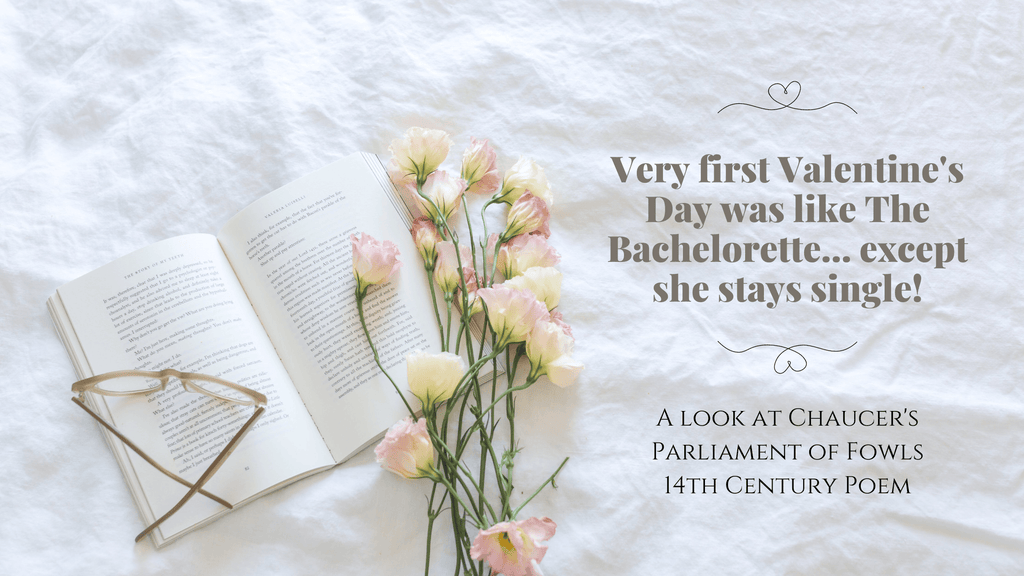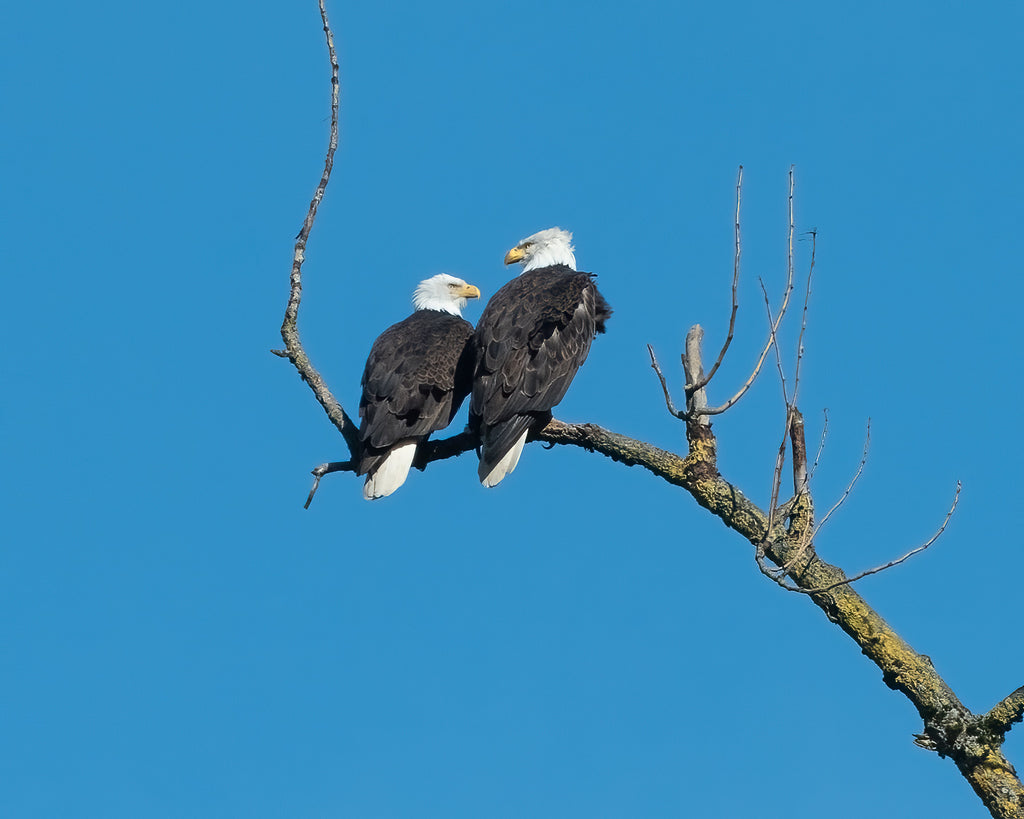First mention of Valentine’s Day in Chaucer's poem was like The Bachelorette TV show

If you’re single this year for Valentine’s Day, ditch the cheesy rom-coms where everyone falls in love, and join the birds in Chaucer's Parliament of Fowls poem as they hilariously navigate the complexities of love, courtship, and singlehood.
Literature's earliest depiction of Valentine's Day is absurdly similar to The Bachelorette TV show except the bachelorette decides to stay single! Grab your favorite beverage and some popcorn and let’s break down the masterful wit of Geoffrey Chaucer.
Valentine's Day has a complex history filled with confusion and misinformation. The origin of the holiday is sometimes traced back to the ancient pagan festival of Lupercalia, which was observed from February 13th to 15th and associated with fertility (but was actually pretty violent and bloody, ew). I couldn’t find anything that made this festival romantic.
Over the centuries, the holiday was associated with Saint Valentine, one of multiple beheaded martyrs with no traceable connection to love and romance, but who somehow became the patron saint of love and marriage. The Vatican actually removed the Feast of St. Valentine from the General Roman Calendar in 1969 due to the lack of credible information about him. So, where's the connection?
Nothing in history feels even remotely lovey-dovey about Valentine’s Day until Chaucer’s mention of it in his 14th century poem, Parliament of Fowls.
You might be familiar with Geoffrey Chaucer’s The Canterbury Tales. Before that, he wrote Parliament of Fowls, where he deemed Valentine’s Day as a time for every species of bird to gather and choose their mate for love and procreation—like cuffing season, but for birds.
In the poem, Goddess Nature presides over the assembled birds. As she speaks to the crowd, she’s holding a female eagle on her hand described as the most perfect, gracious, and kind of all of her creations. The way that Nature regards this eagle, or this symbol of femininity and womanhood, was unheard of in the 14th century. Women were generally second-class citizens and expected to be submissive to men.
But what happens next reminds me of The Bachelorette TV show where the woman has all the power and the men have to prove their worth…
Nature is the ultimate wing-woman for the male birds deemed the worthiest, letting them go first in choosing a mate. First up is the male eagle who she describes as a wise and true royal fowl.
The male eagle immediately starts love-bombing the prized female eagle. He basically says that no one loves her as much as he does, and he’ll always be hers whether she accepts him or leaves him to pine away and die. He says if he ever cheats on her or is negligent in any way, then all the other birds can rip him to shreds.

Then it’s time to gather ‘round for a good old-fashioned love triangle! Two other male birds start trying to seduce and win the heart of the lady eagle too. One exclaims that he in fact loves her more than the first guy! And that if he’s ever unfaithful or jealous then she can hang him by his neck.
They all continue with poetic words of adoration and affection, having a debate for the rest of the day to decide which one deserves to marry her.
All of the other birds have lost their patience and start to wonder when the pleading between the three male birds will come to an end. As Chaucer describes, they cry out, ‘Kek, kek!’ ‘Cuckoo!’ ‘Quack, quack!’
Goddess Nature steps in and tells everyone to shut their beaks. The game is about to turn into American Idol where one of every species of bird becomes a judge and rates the performance of each male bird. And similar to the show, the judges start to fight amongst themselves, calling each other idiots and fools.
One of the judges says it’s impossible to tell who loves her more (they barely know her after all). Another judge says the female eagle should just choose the first male eagle because Nature said he’s the most worthy. Another one says that there are plenty of fish in the sea and all of the men should move on, and yet another says that they should all pine for her for the rest of their lives even if she doesn’t want any of them.
As wildly entertaining as the back and forth is, Nature loses her patience once again and decides that the female eagle can make her own choice.
The female eagle must have found this courtship to be similar to online dating because she is not impressed. Red flags everywhere. No one is getting a rose from her. In fact, she says that even if Nature kills her for it, she’s flying solo for at least another year!
Nature agrees and says, 'You go girl! You don't need a man.' Ok, she didn't say that exactly, but you get the point. The female eagle can continue to live her best single life as an independent lady.
In the first reference of the holiday, Valentine's Day wasn’t only for lovebirds, but for all of us to indulge in our own free will (which makes me love the holiday even more!).
This actually makes me think of a modern poem written by R. Clift.
She writes:
How can you expect me
to keep my feet
on the ground
when you are fully aware
that I can fly?
For now I may walk beside you,
but you should know this
won’t last forever.
I love you, I will always love you,
but when the stars call—
I must go.
I will always choose my wings.
This Valentine’s Day let’s romance ourselves and do all the things our heart desires. Write yourself a love letter, buy yourself flowers or a box of chocolates, take a bubble bath with a glass of champagne, and soar into another year of self-love.
With love,
Alison Rose
Social media: @alisonrosevintage
Shop: alisonrosevintage.com


Comments on this post (1)
I love this commentary! The drama! The romance!
— Jalen G